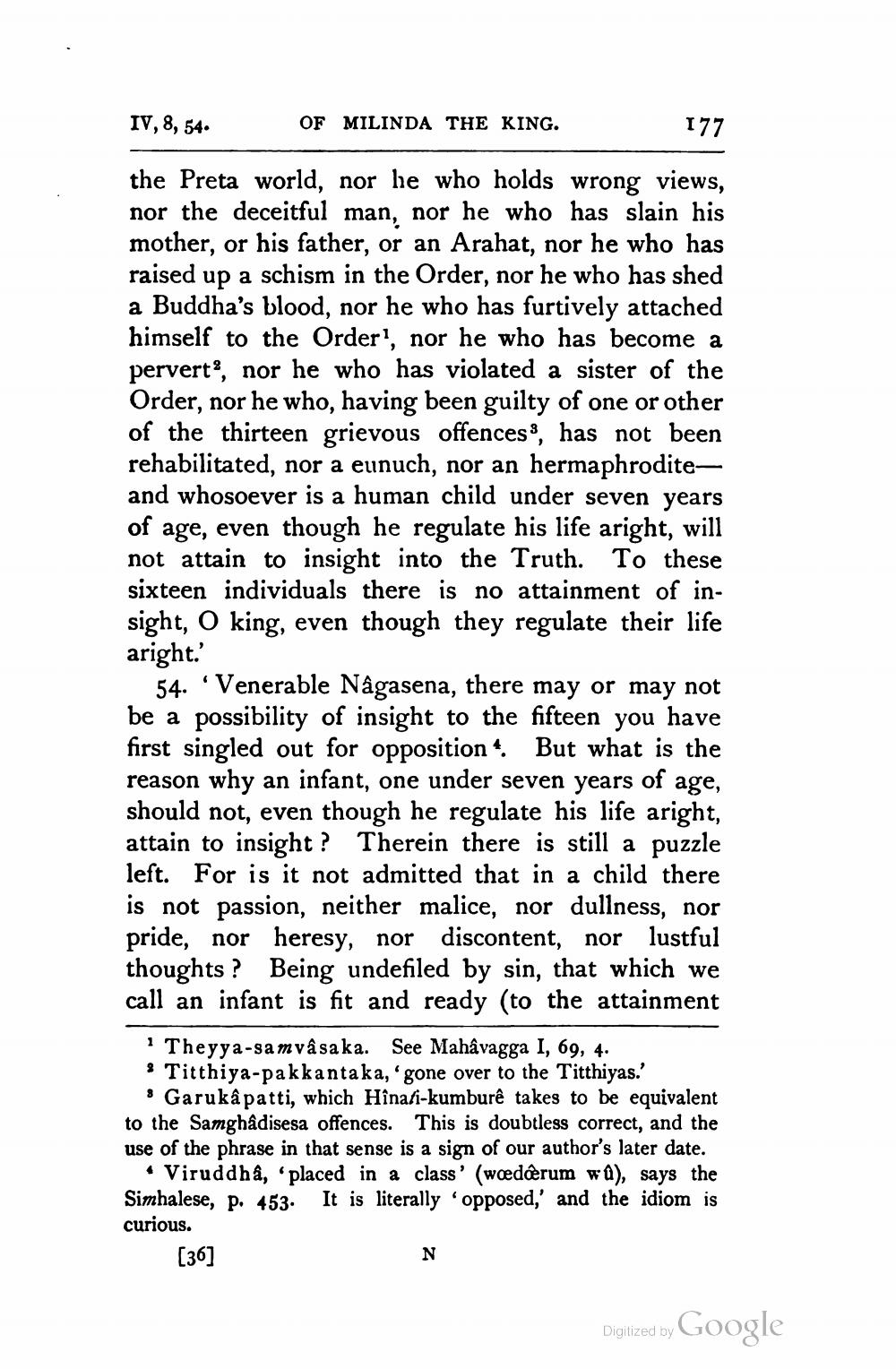________________
IV, 8, 54.
OF MILINDA THE KING.
177
the Preta world, nor he who holds wrong views, nor the deceitful man, nor he who has slain his mother, or his father, or an Arahat, nor he who has raised up a schism in the Order, nor he who has shed a Buddha's blood, nor he who has furtively attached himself to the Order", nor he who has become a pervert?, nor he who has violated a sister of the Order, nor he who, having been guilty of one or other of the thirteen grievous offences, has not been rehabilitated, nor a eunuch, nor an hermaphroditeand whosoever is a human child under seven years of age, even though he regulate his life aright, will not attain to insight into the Truth. To these sixteen individuals there is no attainment of insight, O king, even though they regulate their life aright.'
54. Venerable Nâgasena, there may or may not be a possibility of insight to the fifteen you have first singled out for opposition. But what is the reason why an infant, one under seven years of age, should not, even though he regulate his life aright, attain to insight? Therein there is still a puzzle left. For is it not admitted that in a child there is not passion, neither malice, nor dullness, nor pride, nor heresy, nor discontent, nor lustful thoughts ? Being undefiled by sin, that which we call an infant is fit and ready (to the attainment
1 Theyya-samva sa ka. See Mahavagga I, 69, 4. ? Titthiya-pakkantaka,'gone over to the Titthiyas.'
& Garukâ patti, which Hînafi-kumburê takes to be equivalent to the Samghâdisesa offences. This is doubtless correct, and the use of the phrase in that sense is a sign of our author's later date.
• Viruddha, placed in a class' (weedcrum wa), says the Simhalese, p. 453. It is literally 'opposed,' and the idiom is curious.
[36]
Digitized by Google




